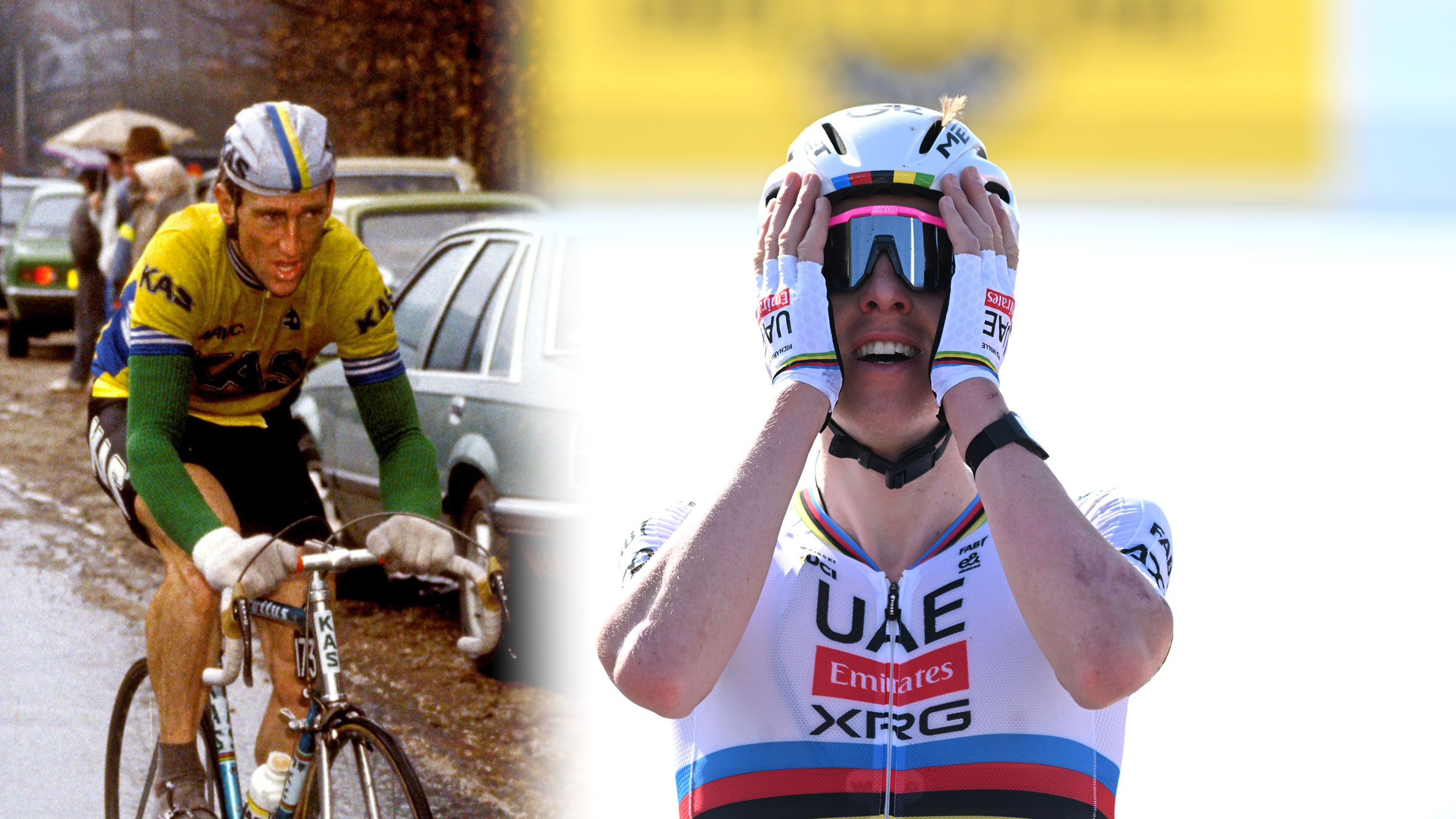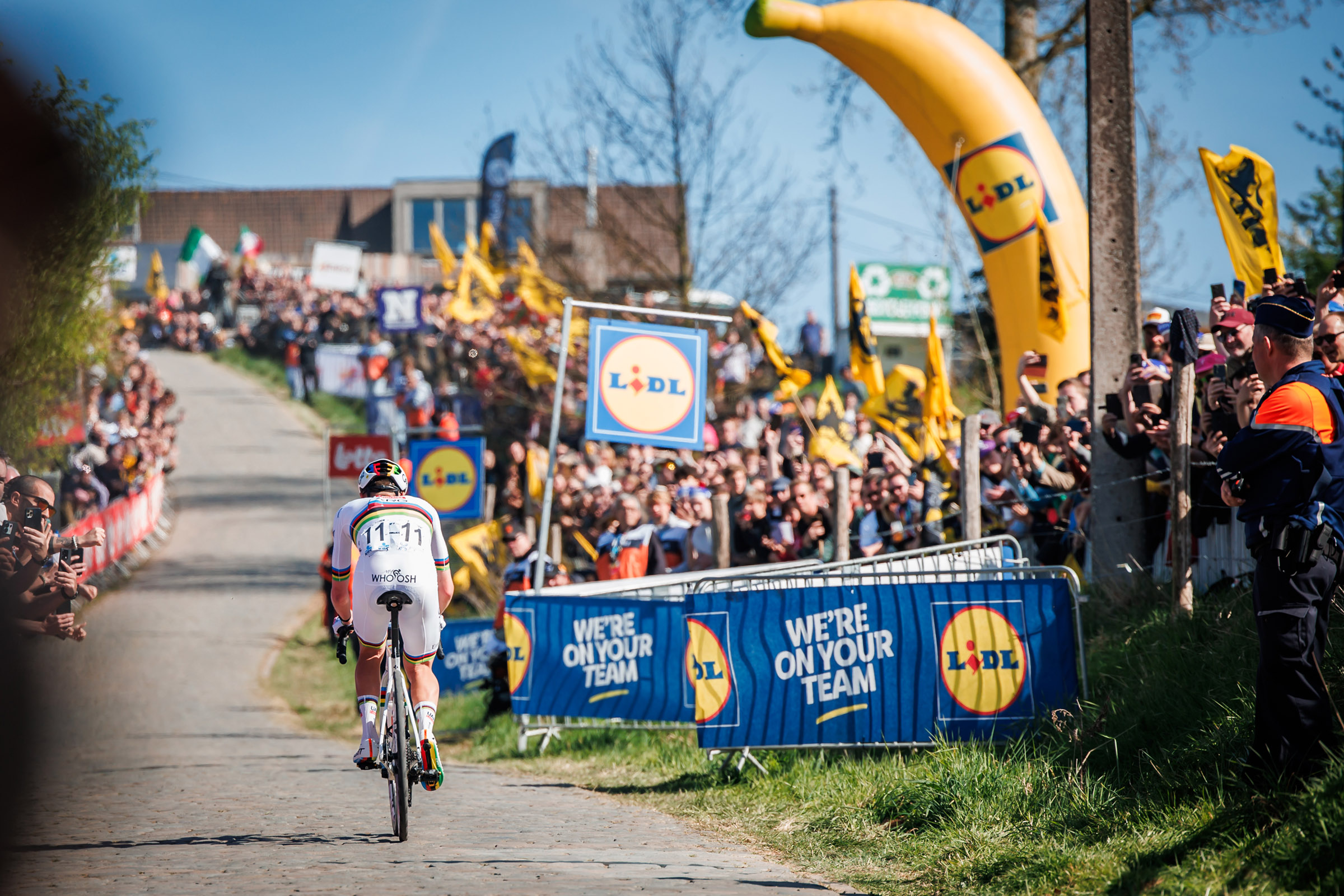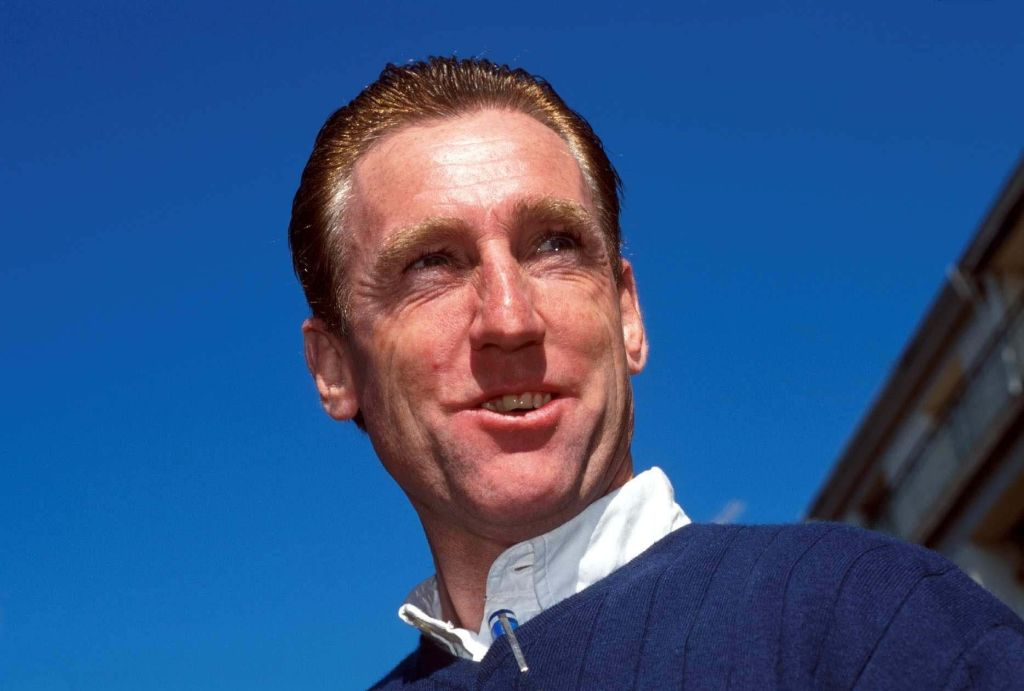Sean Kelly's Classics Column: What Tadej Pogačar did in the Tour of Flanders was insane
Former double Paris-Roubaix winner less certain about Slovenian's chances in Hell of the North

On Sunday when Tadej Pogačar was heading towards victory in the Tour de Flanders, my mind cast back to what he's already achieved in the Tour de France and so many other stage races, too, not just the Classics.
Like I've said many times about Pogačar in the Tour de France or any week-long stage race, where can you beat him? Back through the last 30 years, you can look back at the guys who were good three-week stage race riders, and with 95 or even 100% of them, there were always places where they were not maybe the best. Like in the times of Bernard Hinault, say, there were climbers that he couldn't match in the mountains.
But with Pogacar, there's nowhere you can find a weakness - he can time trial against the best, he can ride well on the flat and in the wind, he can ride downhill, he can do every bloody thing. So where can you get an opportunity to put him in a bit of difficulty? The answer is - there isn't such a place.
And that's stage racing. Now when you come to the Classics, he's coming up against guys who are specialists in the cobbled races like Flanders and he's able to ride these guys off his wheel as well. It's just insane what he's able to do - he's a talent in a class of his own.
He does handle the pressure really well, too, and when he's asked the questions, he's like 'Ah sure we'll go out there and see what we can do.' But when you're really super, then the pressure goes away because you know yourself, that feeling - it takes a lot of the pressure off because you know you can do it on the road. You can just produce those performances.
To look at what he did in Flanders, what first impressed me, even before his final attack was the way he was putting in all those moves, putting everybody on the limit and never getting to the limit himself. He took so much time on the guys who were dangling out front, in a couple of hundred metres he could take back 15-20 seconds, just like that. He was controlling what was out in front and making life so difficult for the guys that were with him.
But when you got into the real important points of the race, it was always going to be Pogačar against Mathieu van der Poel and like I said last week, Van der Poel was bound to be in difficulty to match him on the Oude Kwaremont. It comes at such a late point and it's so long, if you start to suffer a little bit, that's where Pog's going to kick you. And it just turned out like that.
Everybody was talking about the Kwaremont on the last time being where he's going to hit so hard and everybody would need to be on the best day of their life to stay with him.

The only thing for Van der Poel was: would he be able to hang on? Everybody was talking about that and also Pogačar was maybe thinking he could. But the rest, there was no way. Then there was the way he was attacking, which was just to wear everybody down including Van der Poel and it worked. Because Van der Poel wasn't too far off but when Pogačar attacked, he lasted just a couple of hundred metres and then it was over.
I don't think Van der Poel was racing for second, though, even if for some, maybe, when they started the race, getting on the podium at most would have been in the back of their mind. His attitude was 'I'll see how I am in the end, and hopefully I'll be as good as I was in San Remo' and then he could have possibly matched Pog.
He did do very well, handling Pogačar's surprise attacks, there were a few times when he was out of position and he could get back on the wheel really well. In fact, it looked really good until that final time on Kwaremont. But that is the point - riding Kwaremont after such a distance, that hard a race, if you're a little bit off then somebody who's just super-human like Pog', then you get caught out.
When Van der Poel wasn't able to follow, it was noticeable how he knocked it off fairly quickly and we saw he got caught by Wout van Aert and the rest. So he wanted to see what would happen after the Kwaremont and maybe if they worked really well together, it could have possibly come back. So you just have to change your tactic, in a split second you have to do that.
The question now is how does this change things for Tadej Pogačar in Paris-Roubaix? He wants to ride all of these races, and you'd maybe think that the Tour of Flanders is one thing, but Roubaix - the risk is big. If it goes wrong in a bad way, it could upset his Tour de France preparation and defence. But at the same time, that makes Pogačar what he is, he loves going for the 'little bit crazy' races.
Paris-Roubaix is another race compared to Flanders, though, it's a very different one.
I think it'll be harder for him to make a difference, too, because on the flat and the cobbles, you have a lot of guys like Van der Poel, and Wout van Aert who'll be able to hang on better to his wheel compared to a climb like the Kwaremont, where it was much more difficult. But with Pogačar I'm afraid to say too much because we could see him win next Sunday in Roubaix too.
I would say Paris-Roubaix is a bit more technical, and even though you can't put a fault in his bike handling, it's another two steps up from Flanders on the cobbles there, with all the cornering and so on. So it'll be a bigger challenge. He won't be as strong a favourite for Roubaix as he was yesterday and if I was a betting man, I wouldn't be putting money on him to win Paris-Roubaix. Even after Flanders. I think the other guys have the experience of racing there before, which Pogačar doesn't have, and on Sunday, the way it was raced also suited Pogačar so well. It all played into his hands, with the other guys being so tired even before he attacked.
I think for Roubaix, too, the guys like Van der Poel and Visma will have the teammates to control any big attacks early on. They're not going to look at Pog and look at UAE and expect them to do everything. I think other guys will think: we've got a great opportunity to win this race, let's not just leave it all on Pogačar and his team. We'll have to take it into our hands as well and as we've seen now, the breaks are so controlled in the earlier parts of the Classics, as well.
So it'll always come down to the top guys to fight it out for the win. But then again, with Pogačar, you never know what he can come up with, too.
Subscribe to Cyclingnews for unlimited access to our 2025 Spring Classics coverage. Don't miss any of the breaking news, reports, and analysis from all the Cobbled Classics from Opening Weekend to Paris-Roubaix. Find out more
"King Kelly", the greatest Irish cyclist to have graced the peloton, brought the Emerald Isle to the fore alongside compatriot Stephen Roche in the 1980s. Points winner at the Tour de France four times, GC in the 1988 Vuelta, and a record-breaking seven consecutive wins at Paris-Nice feature during his glittering career – alongside double victories at Paris-Roubaix, Milan-San Remo and Liège-Bastogne-Liège.
